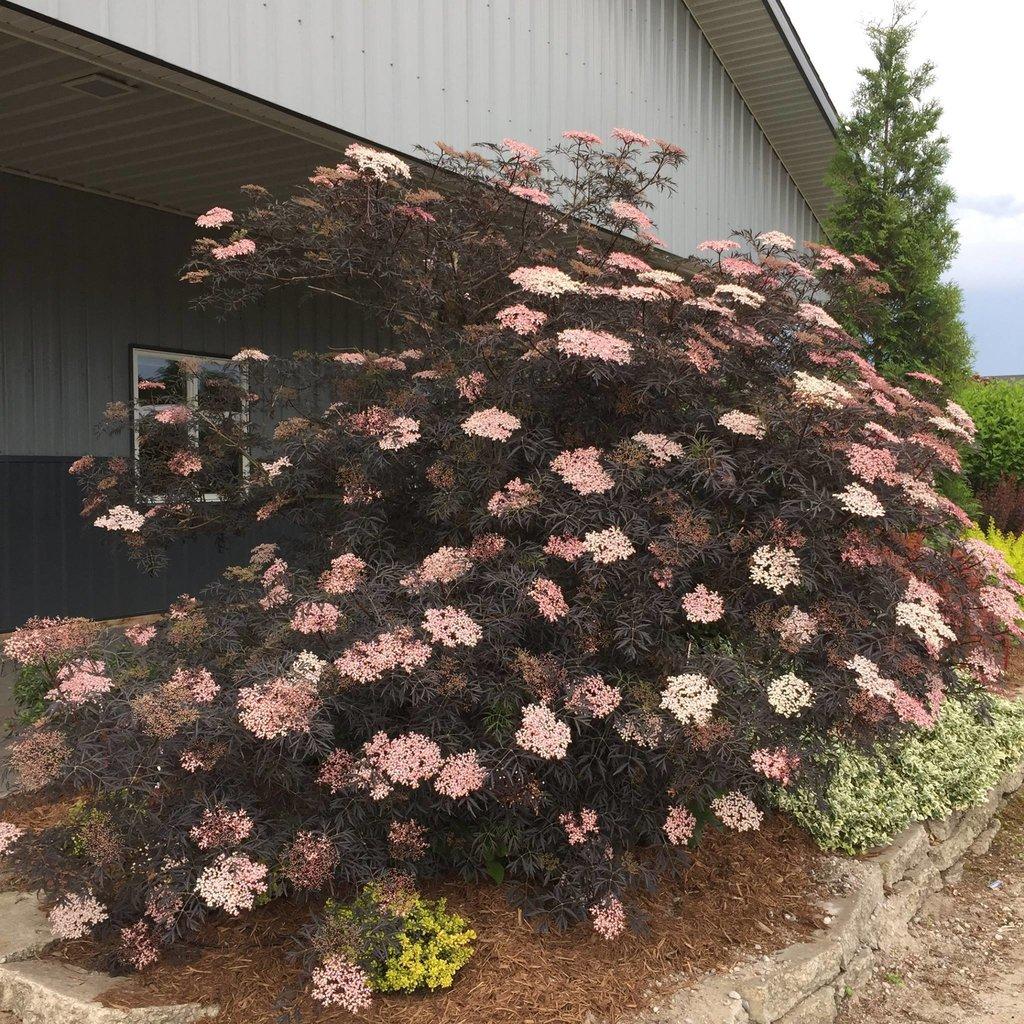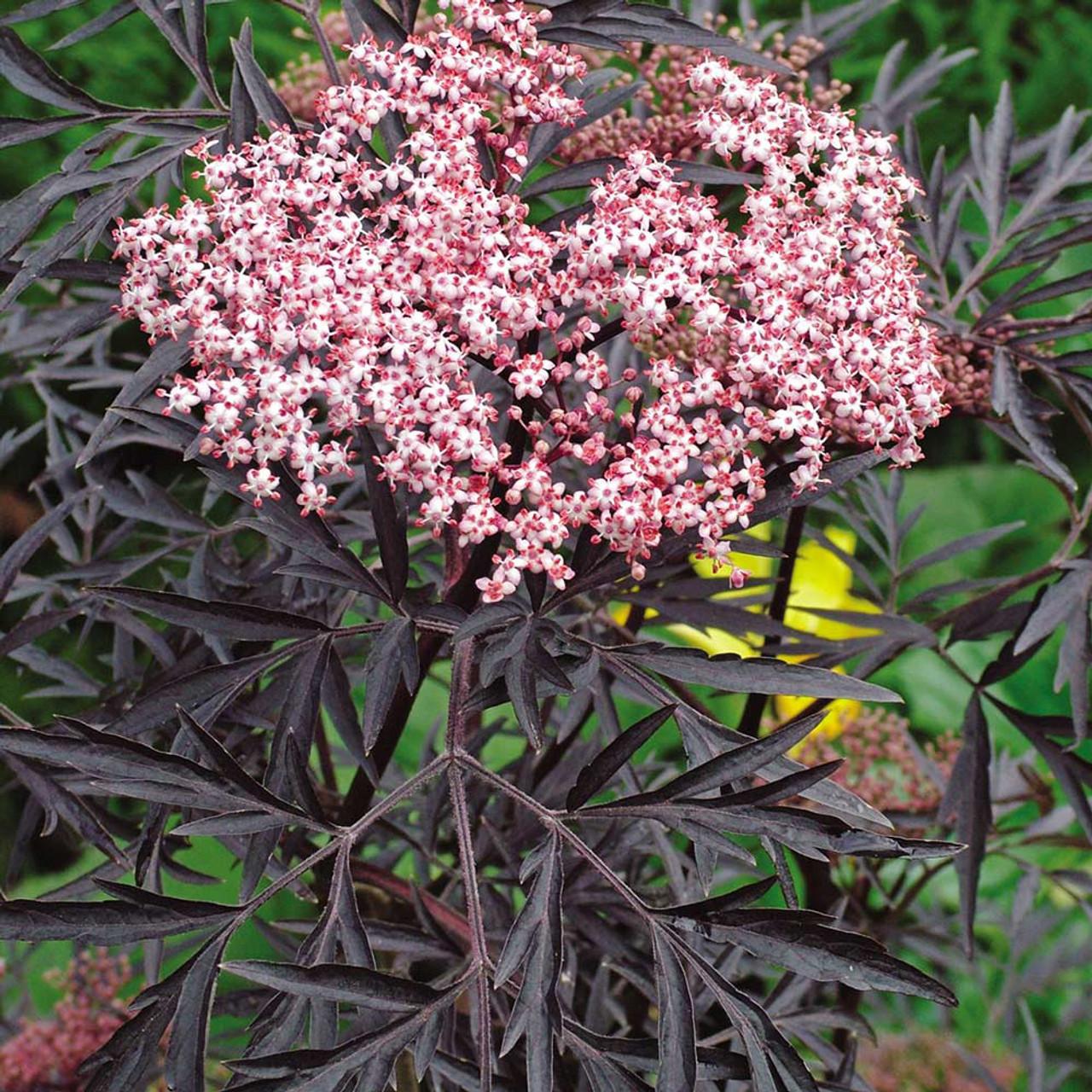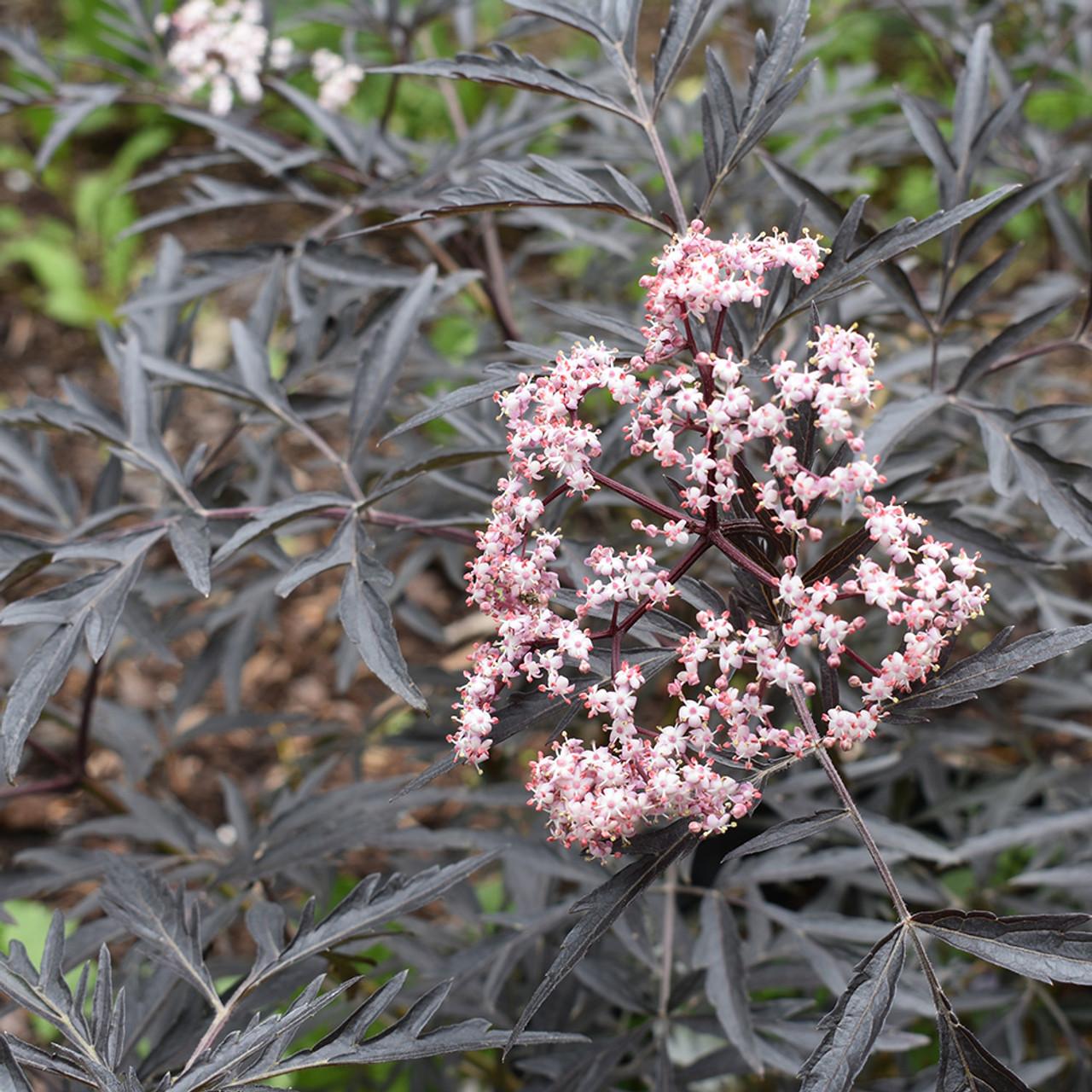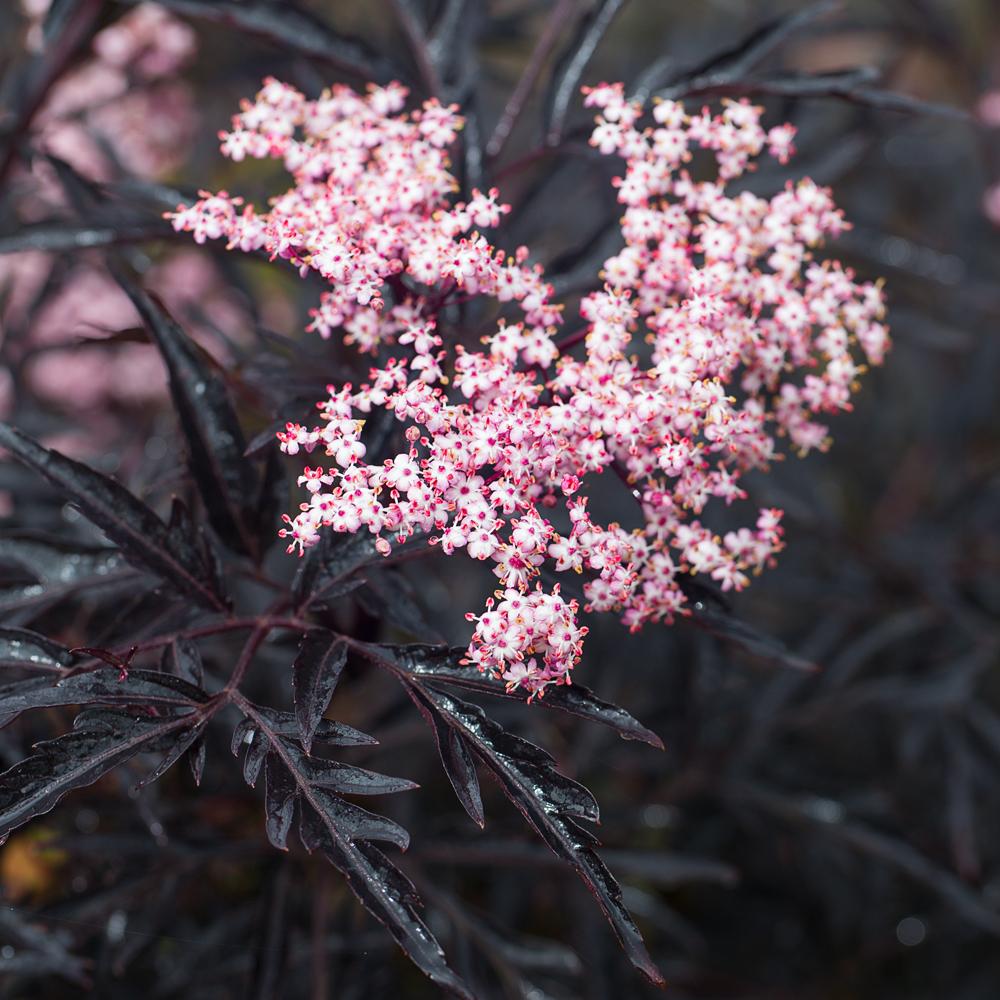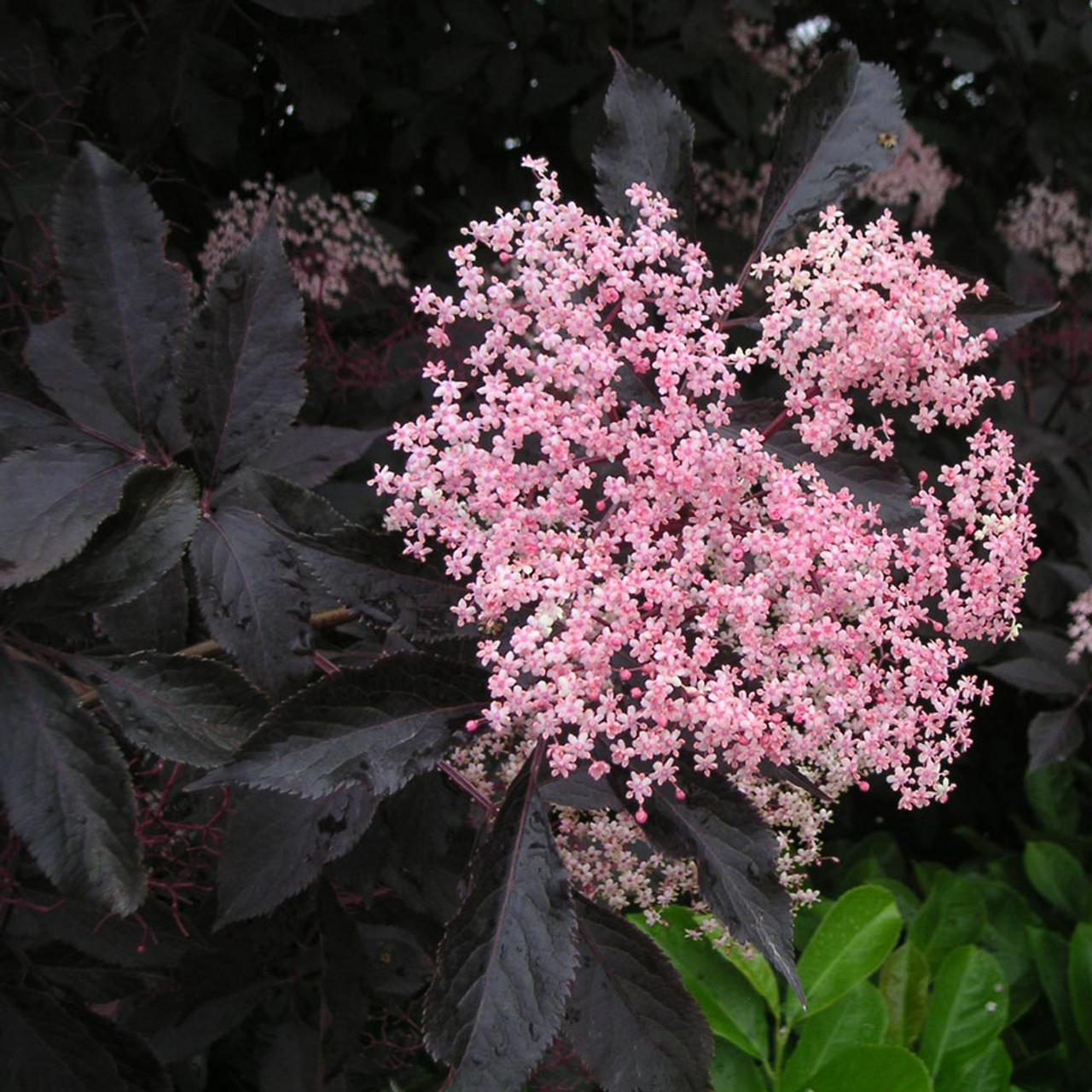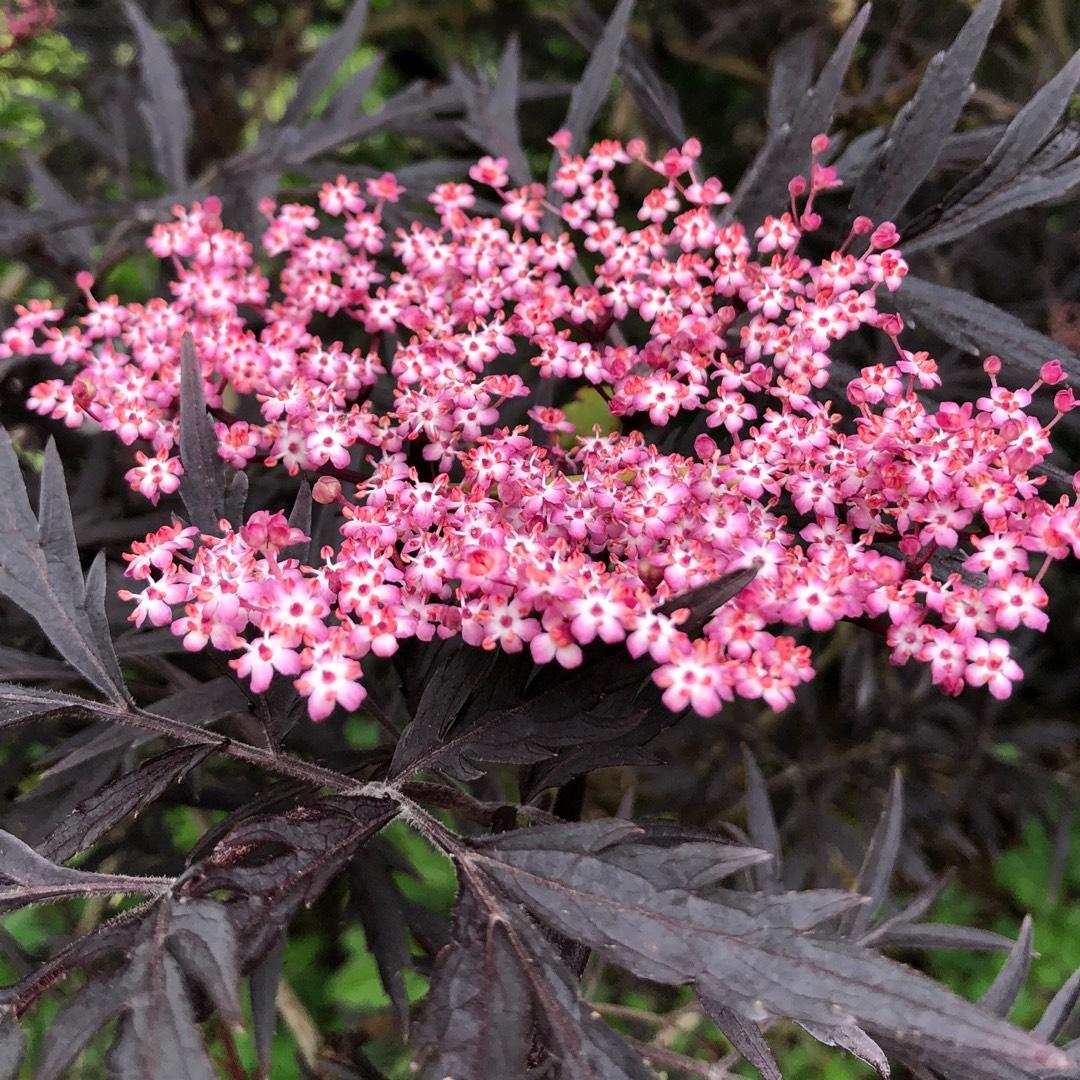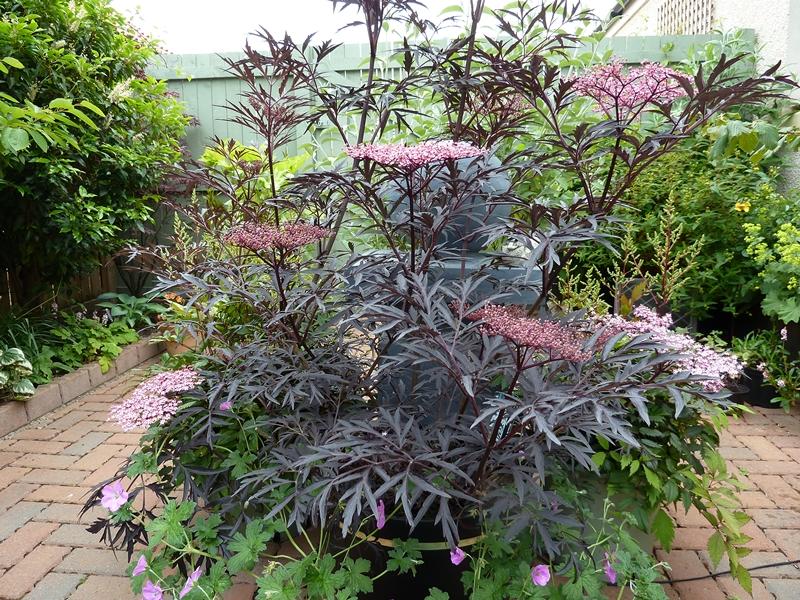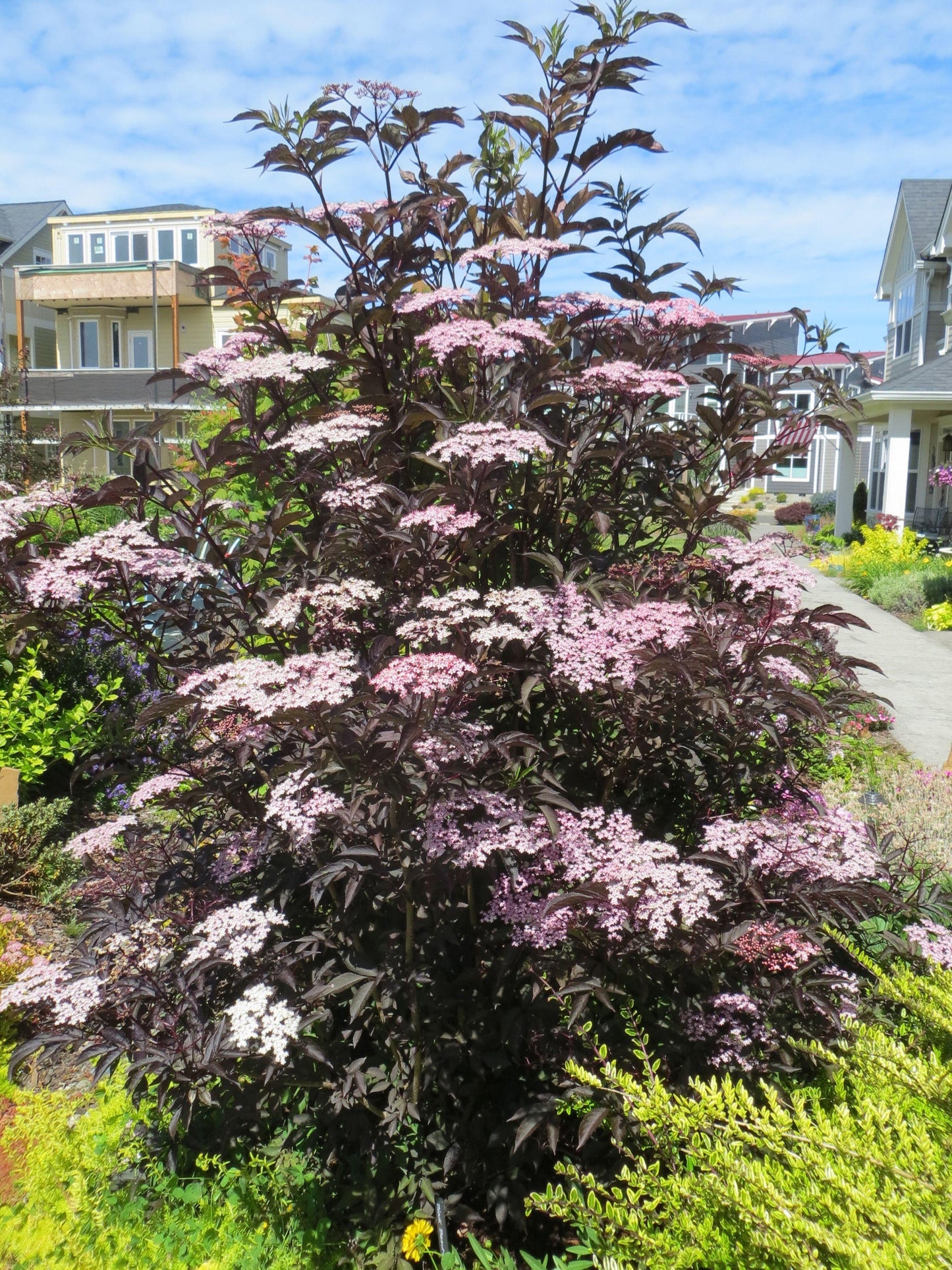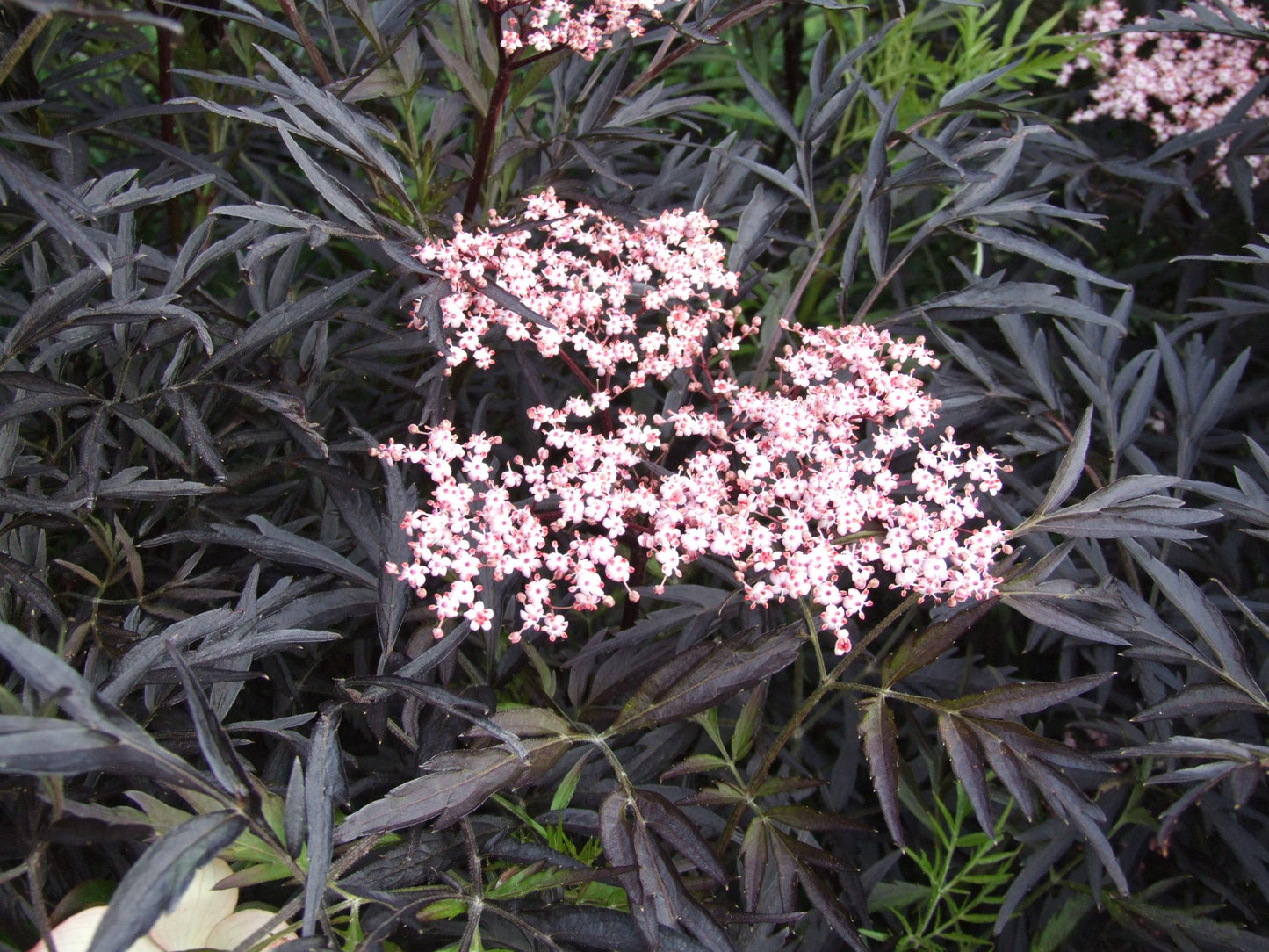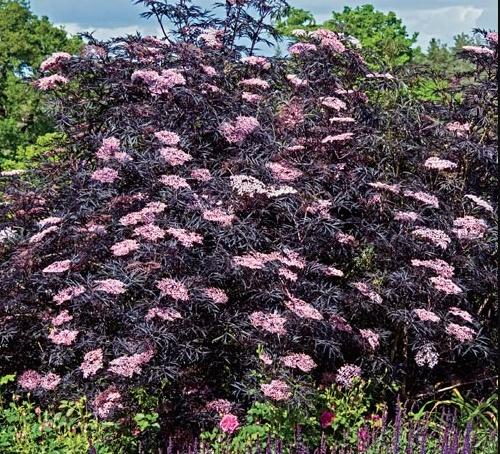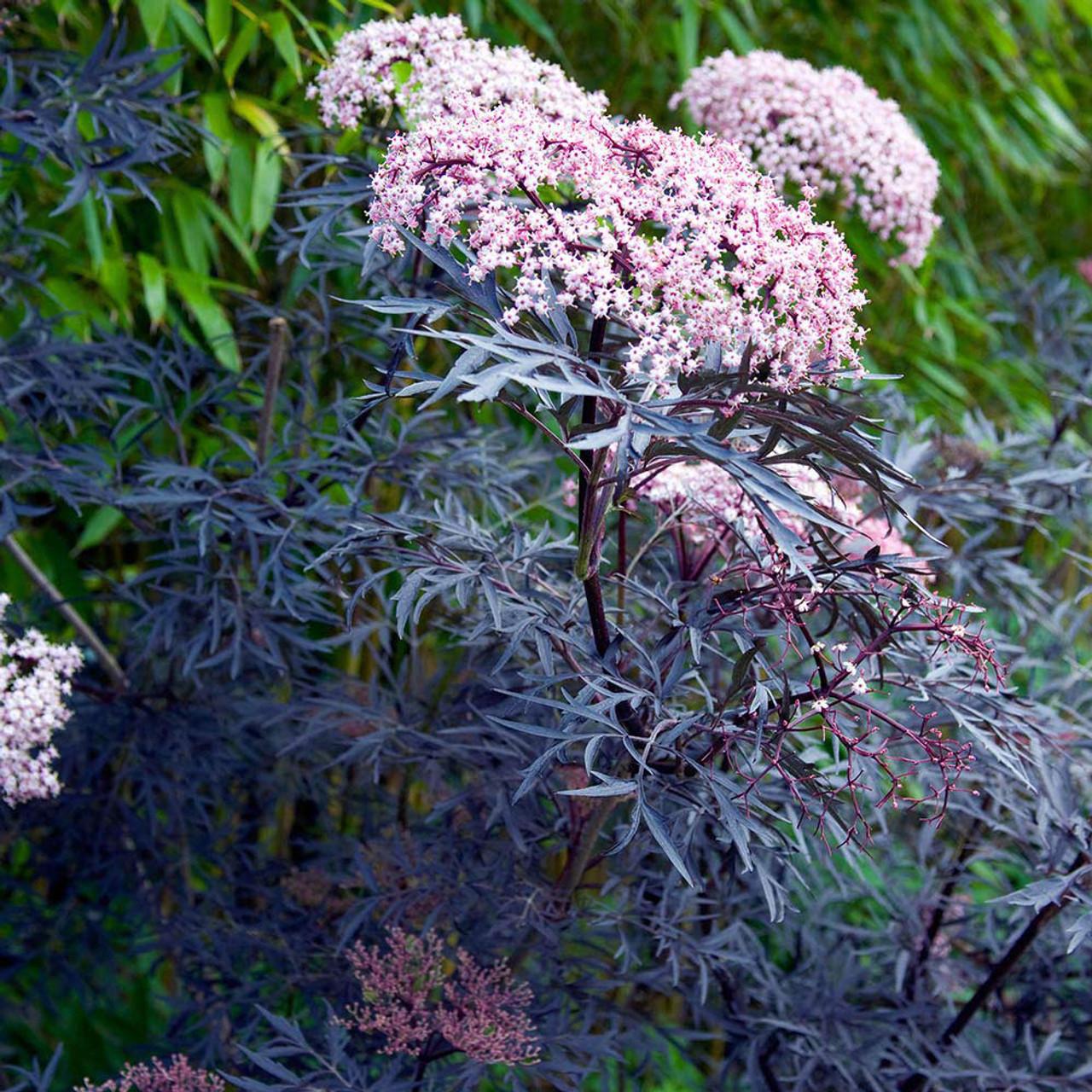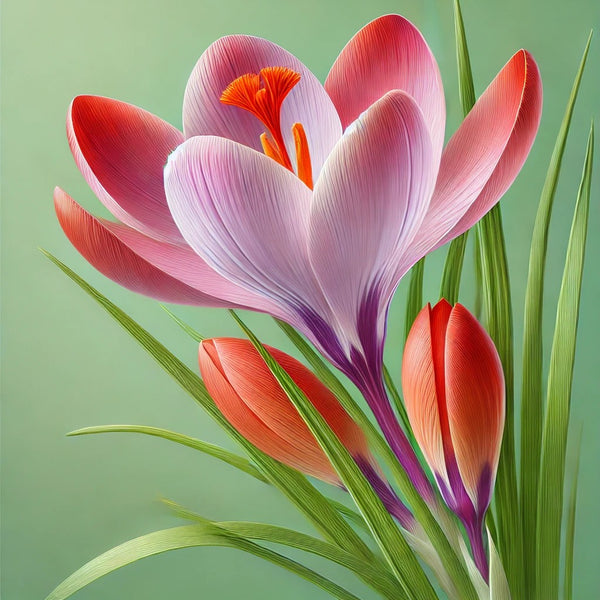1
/
of
16
RedCrocus Black Lace Elderberry-Sambucus nigra-Unique Foliage 3 Gallon
RedCrocus Black Lace Elderberry-Sambucus nigra-Unique Foliage 3 Gallon
Regular price
$168.00 USD
Regular price
$218.40 USD
Sale price
$168.00 USD
Unit price
/
per
Shipping calculated at checkout.
SKU:nsd4285-redcrocus
Couldn't load pickup availability
Sambucus nigra 'Black Lace'
Description
The Sambucus nigra 'Black Lace' is a stunning deciduous shrub known for its deeply cut, dark purple-black foliage that resembles the delicate lace of a Japanese maple. In late spring to early summer, it produces clusters of pinkish-white flowers that contrast beautifully against its dark leaves. These flowers are followed by small, glossy black berries that are attractive to wildlife.
Suggested Uses
This plant is perfect for adding dramatic color and texture to mixed borders, hedges, or as a standalone specimen. Its flowers and berries can also be used in culinary applications, such as elderflower cordial or elderberry jam.
Plant Details
-
 Botanical Name: Sambucus nigra 'Black Lace'
Botanical Name: Sambucus nigra 'Black Lace' -
 Common Name: Black Lace' Black Elderberry
Common Name: Black Lace' Black Elderberry -
 Size & Growth: 6-8 feet tall and wide
Size & Growth: 6-8 feet tall and wide -
 Hardiness Zones: 4-7
Hardiness Zones: 4-7 -
 Foliage Type: Deciduous
Foliage Type: Deciduous -
 Bloom Time: Late spring to early summer
Bloom Time: Late spring to early summer -
 Growth Rate: Moderate
Growth Rate: Moderate -
 Light Requirements: Full sun to partial shade
Light Requirements: Full sun to partial shade -
 Attracts Pollinators: Yes
Attracts Pollinators: Yes -
 Indoor Friendly: No
Indoor Friendly: No -
 Container Friendly: Yes, with regular pruning
Container Friendly: Yes, with regular pruning -
 Deer Resistant: Yes
Deer Resistant: Yes -
 Pet Warning: Berries may be toxic if ingested
Pet Warning: Berries may be toxic if ingested -
 Fragrant: Yes, flowers have a light fragrance
Fragrant: Yes, flowers have a light fragrance -
 Cut Flower: Yes
Cut Flower: Yes -
 Grows Well With: Hydrangeas, Roses, and other sun-loving shrubs
Grows Well With: Hydrangeas, Roses, and other sun-loving shrubs
Care Tips
-
 Planting Instructions: Plant in well-drained soil with good organic matter
Planting Instructions: Plant in well-drained soil with good organic matter -
 Soil Moisture: Keep soil consistently moist, especially during dry spells
Soil Moisture: Keep soil consistently moist, especially during dry spells -
 Soil Type: Prefers rich, well-drained soil
Soil Type: Prefers rich, well-drained soil -
 Humidity: Tolerates average humidity levels
Humidity: Tolerates average humidity levels -
 Pruning Instructions: Prune in late winter to early spring to maintain shape and remove dead wood
Pruning Instructions: Prune in late winter to early spring to maintain shape and remove dead wood -
 Winter Care: Mulch base to protect roots in colder climates
Winter Care: Mulch base to protect roots in colder climates -
 Planting Depth: Plant at the same depth as it was in the nursery pot
Planting Depth: Plant at the same depth as it was in the nursery pot -
 Fertilization: Fertilize in early spring with a balanced fertilizer
Fertilization: Fertilize in early spring with a balanced fertilizer -
 Special Care: Watch for aphids and powdery mildew; treat as necessary
Special Care: Watch for aphids and powdery mildew; treat as necessary
Share
